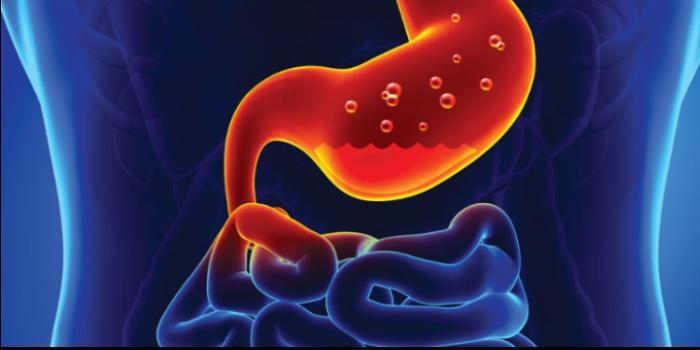Did you know that stomach acid is strong enough to dissolve stainless steel? Our stomach digests food thanks to the highly corrosive hydrochloric acid. It has a pH value of 2 to 3. Stomach acid, or sometimes called gastric acid, is a watery, colorless fluid produced by the stomach’s lining.
Our body can handle normal levels of stomach acid. This way, it doesn’t cause any illness or health complications. But sometimes these systems fail. Stomach acid is quite strong, and it is one of the reasons we sometimes feel discomfort in our belly.
How strong is stomach acid?
Stomach acid is a digestive fluid formed in the stomach. Composed mostly of hydrochloric acid, HCI, it also has potassium chloride and sodium chloride. The stomach produces enough hydrochloric acid to transform a large solid metal, as much as 3l or 12 cups into a semi-liquid soup called chime.
In a healthy stomach, the liquid mass has a pH of 1.0 to 3.5, which is a very strong acid with a very low pH. When your hydrochloric acid in the stomach is at pH 4.0 or below, it starts a cascade of events that are necessary for proper functioning of the entire digestive system. Without low pH and sufficient production of hydrochloric acid in the stomach, we cannot break down food effectively.
The acid encounters a lot of things in our body. It can break down foods you eat into easier-to-consume particles. The acid is also the first line of defense against pathogens and microbes that can make you sick.
This is why the acid is so strong, so that is prevents any microbes entering into your body. Just how acidic and how strong is the stomach acid? We measure acidity on a pH scale. It ranges from 0 to 14. The lower the pH level, the stronger the acidity.
![]()
For example, battery acid has a pH value of 0. That is the highest potent acid, but stomach acid is not as strong. Battery acid can dissolve materials like metal and bone. Stomach acid can also do great damage to some of the strongest materials, like teeth and bones. The vital roles of stomach acid are:
– Acidify the stomach
– Denature or unwind proteins so they are digestible
– Activate the protein-digesting enzyme pepsin
– Encourage the flow of bile and pancreatic enzymes
– Assist in proper absorption of minerals and trace elements
– Support optimal absorption of important nutrients like folic acid and Vitamin B12
– Destroy micro organisms like bacteria, viruses, parasites, yeasdt, and more
– Destroy micro organisms in contaminated meat or products
– Act as protective barrier against pathogen overgrowth and infection in the small intestine
![]()
What happens if you have low levels of HCI?
Sometimes, the acidity levels of your stomach go down. It is normal for the acidity level to fluctuate from time to time. For example, when you take a lot of medication. Or stress can interfere in the production of hydrochloric acid.
The symptoms of low levels of hydrochloric acid include:
– Burping
– Bloating
– Diarrhea
– Heartburn
– Indigestion
– Nausea and vomiting
– Hair loss
When your stomach acid is chronically low, you suffer from a condition called hypochlorhydria, a condition in which your body cannot digest food and absorb nutrients properly.
What happens if you have high levels of HCI?
We said levels of acid in the gastric juices fluctuates. It can also get too high. When this happens, the mucus in your stomach stops being effective.
You may experience complications like:
– Acid reflux
– Gastroesophegeal reflux disease
– Gastric ulcers
The symptoms are nausea, vomiting, bloating, abdominal discomfort, decreased appetite, and unexplained weight loss.





















